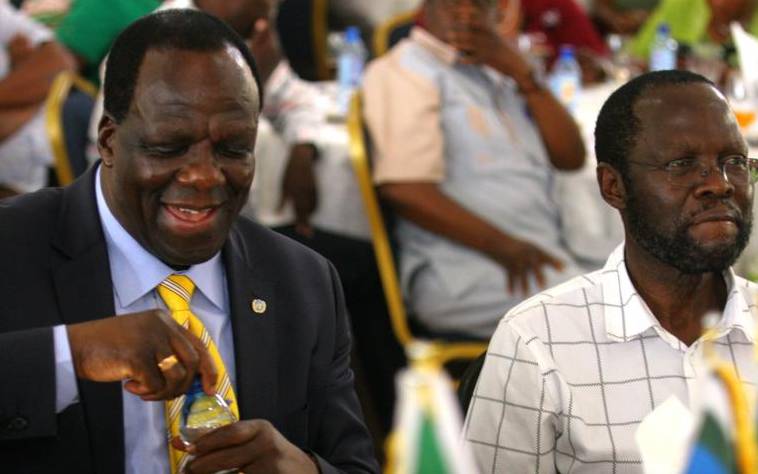×
The Standard e-Paper
Kenya’s Boldest Voice

Lake Region Economic Block Chairman Wycliffe Oparanya (Left) with Kisumu Kisumu Governor Anyang Nyongo during a consultative meeting with 14 members of county assemblies of the Lake Region Economic Block in Kisumu on October 12th 2018. [Photo: Collins Oduor, Standard]
The process of getting the Lake Region Economic Bloc (LREB) up and running faces further hurdles after two county speakers raised legal concerns.